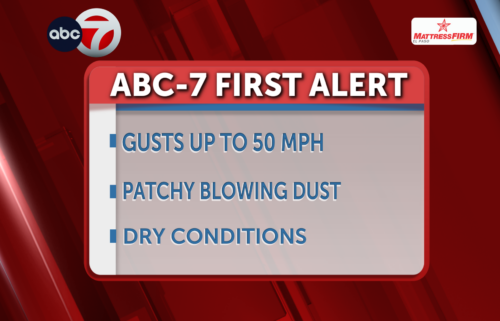With ‘the border on one side and the cartel on the other,’ migrants see little hope in Title 42’s end
By Corrie Boudreaux (El Paso Matters)-- As Title 42 enters what is supposed to be its final week, migrants waiting in Juárez for an opportunity to enter the United States have lost much of their hope that the end of the pandemic-era policy will make reaching their destination any easier.
“The uncertainty grows each day,” said Franklin, a Venezuelan migrant who spoke from a shelter in Juárez on Friday about the elimination of Title 42 and the upcoming enforcement of Title 8. “People start getting desperate and there is a lot of false information.”
Title 8, a United States immigration law, allows for civil prosecution and removal of migrants who enter the country illegally as well as a five-year ban on re-entry. Migrants who violate this ban by attempting re-entry can be criminally prosecuted or banned for up to 20 years. In contrast, under Title 42 there are no penalties for migrants and asylum seekers who are removed and attempt to re-enter multiple times.

Those penalties mean that there will be even more risk for migrants who cross illegally after Title 42 is lifted, Franklin said. He and his partner are not celebrating the end of Title 42. It just means more waiting for them as they continue to log onto the CBPOne application every day in hopes of getting an appointment.
Several miles to the northeast of Franklin’s shelter, hundreds of migrants are already camped along both the American and Mexican banks of the Rio Grande near Gate 40, just south of the border wall opposite Yarbrough Drive. Four days ago, officials at the gate told them that they would be processed within 48 hours, Ruben, a migrant from Colombia, said on Friday. That has not happened.
“People are suffering,” he said. “People are hungry, children are sick with vomiting and diarrhea, and we have no answers.”
Ruben said that on Thursday night officials made migrants camped on the American side throw away all of their supplies and food in preparation for “letting us through.”
“But it was a lie, just to make us suffer and maybe to make us leave,” he said. “(We are) between the border on one side, where they will not let us through, and the cartel on the other, where we are risking our lives.”
CBP officials disputed the characterizations by the migrants. "CBP officers do not make asylum determinations nor is the CBP One app a mechanism to apply for asylum. In recent months, the app has facilitated the scheduling of appointments at ports of entry for consideration of a Title 42 exception," the agency said in a statement.
Migrants said that criminal organizations have kidnapped individuals from the riverbank camp.
“We have been having problems with the cartel,” said Yury, a father from Venezuela. “But (Border Patrol) will not let us through because they say the shelters are full.”

Yury arrived in Juárez on January 9 with his 6-year-old daughter. Since Monday, he said, migrants of various nationalities have been camping at the river.
He doubts that the end of Title 42 will help him and his daughter in their quest to reach the United States.
“What I understand is that with Title 42, they would send you back to Mexico, but with Title 8, they will deport you to your country of origin and they will punish you for 10 years,” Yury said. “We don’t know what will happen with Venezuelans, Nicaraguans, the countries where the United States doesn’t have that relationship.”
Mexico will continue to accept migrants from Venezuela, Nicaragua, Cuba and Haiti who are expelled or deported from the United States, according to a joint statement by Mexico and the United States issued on May 2.
His attempts to schedule an appointment through the application CBPOne have failed, a common complaint from migrants in Juárez. Beginning May 10, the application will be updated to schedule up to 1,000 appointments per day and to allow non-citizens access 23 hours a day, rather than at one specific time, to schedule an appointment, Customs and Border Protection announced Friday. The change is expected to alleviate some of the problems that migrants with poor internet connectivity, for example, have had in scheduling appointments.
But some migrants have found that the coveted appointments end in disappointment and even separation from loved ones.
Julio, a Venezuelan man who now lives in the same shelter as Franklin, scheduled an appointment through CBPOne along with his partner and her two children. He arrived at an El Paso port of entry on April 25 with his identification.

“I was fingerprinted, then they asked if my identification was authentic,” Julio said. He told them that it was a real identification. “Then they called me up and told me, ‘Mexico is over there.’ They did not give my identification back. They did not explain anything to me.”
Agents pushed him and two other men who were also at the port of entry for appointments back toward Mexico, Julio said. His partner and her children were processed and released in the United States.
“We asked for an explanation but they just pushed us away. They treated us like animals,” Julio said. “We came all this way together just for them to separate us here. It hasn’t been easy.”
CBP said an appointment via the app is not a guarantee of admission into the United States. “The determination of which Title 8 process to apply is made on a case-by-case basis. Those processed for removal proceedings will have an opportunity to express fear of return in conjunction with those proceedings,” the agency said in a statement.
Migrants should continue to have patience and wait for appointments, Julio advised. He worries that crossing the border illegally would only leave him vulnerable to a future deportation.
Back at the river, hundreds of migrants have already stepped through gaps in the concertina wire placed by Texas National Guardsmen. They now wait on the strip of land between the river and the border wall. Still, some have lost any hope they may have had about Title 42’s expiration being an answer to their prayers.
“We don’t know what will happen tonight, so we can’t even imagine what might happen after May 11,” Ruben said. “We are just here, gambling our lives on luck.”
4 p.m. May 7: This story has been updated with comments from U.S. Customs and Border Protection.
This article first appeared on El Paso Matters and is republished here under a Creative Commons license.![]()




